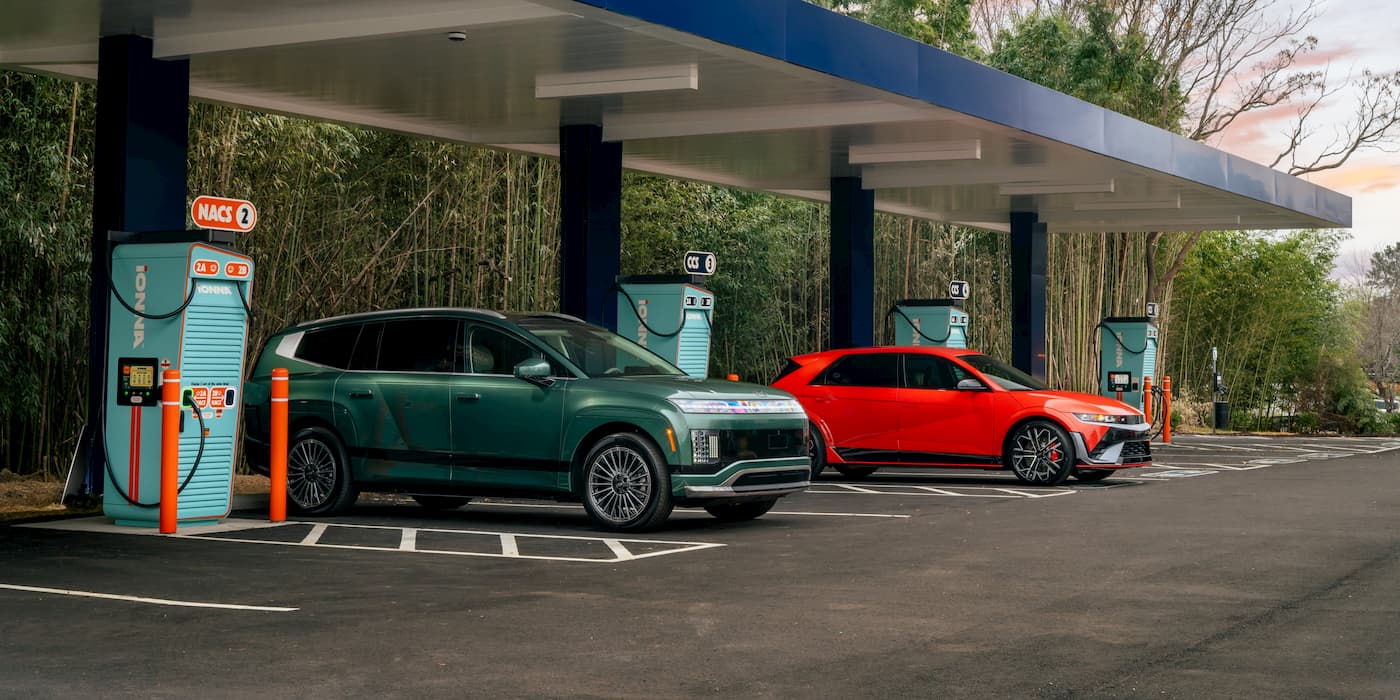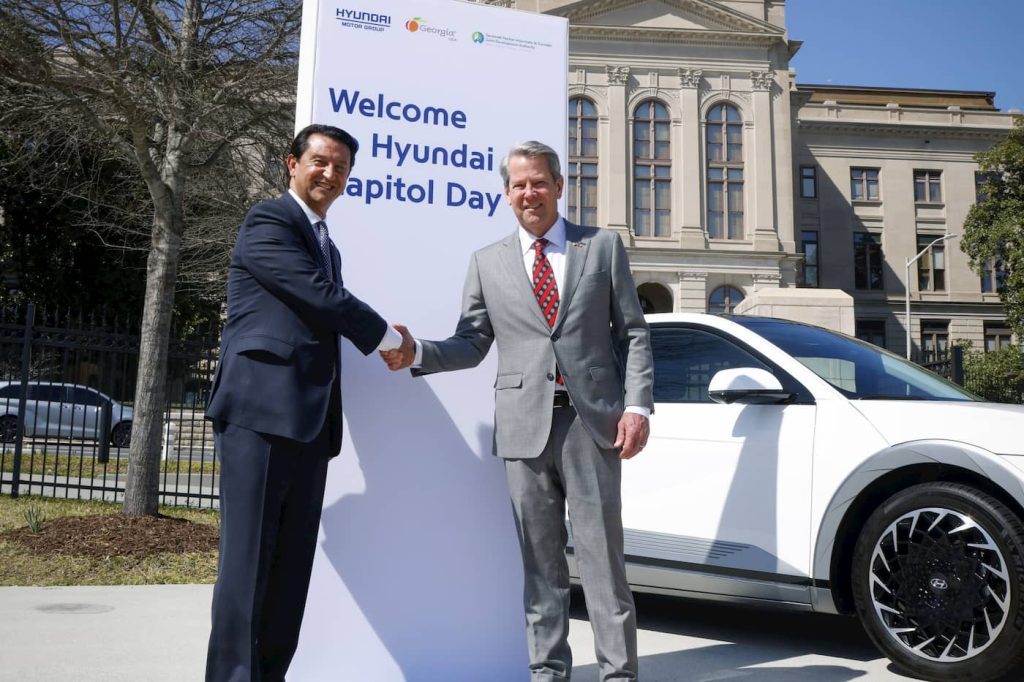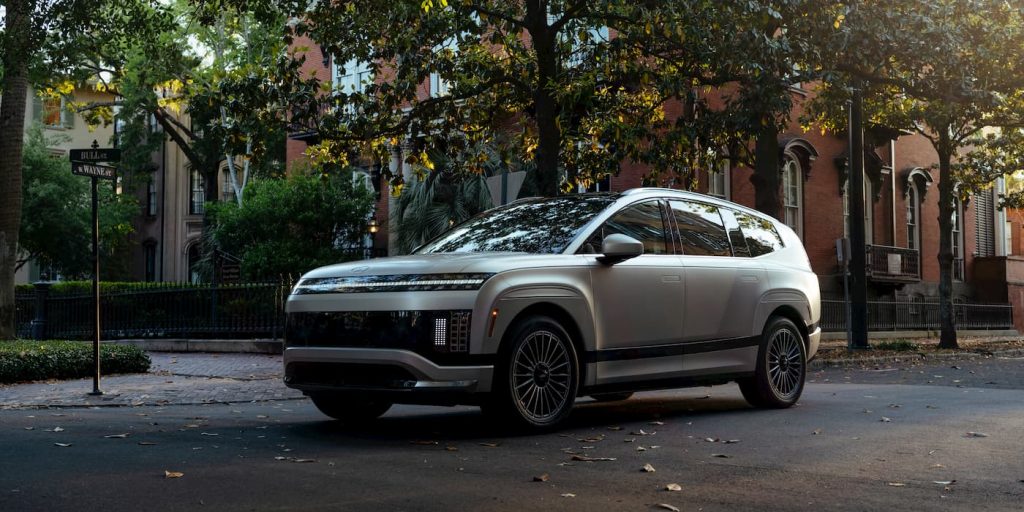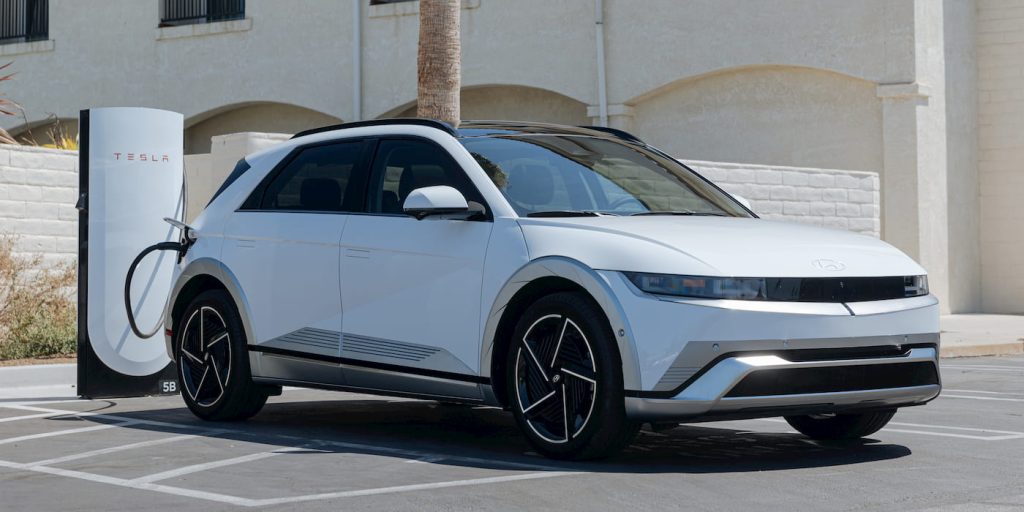
Hyundai said the new trade agreement was a “historic achievement” between the US and South Korea. Although Hyundai Motor, including Kia and Genesis, is getting some relief with lower US tariffs, it’s still expected to face billions in extra costs this year.
Hyundai and Kia score US tariff relief
After threatening tariffs as high as 25% on imported vehicles from South Korea, President Donald Trump said on Wednesday that the US will instead enact a 15% tariff.
Hyundai’s executive chairman, Chung Euisun, who was in Washington for the final negotiations, called the agreement a “historic win.” The tariff rate is the same 15% on imports from Japan, putting Hyundai and Kia on a level playing field.
Although it’s better than 25%, the added tariffs are expected to cost Hyundai an additional $5 billion this year. The lower rate will still save Hyundai over $3 billion in costs, according to Bloomberg Intelligence analyst Joanna Chen.
Even before the $7,500 IRA tax credit for electric vehicles and other Biden-era policies were enacted, Hyundai was planning to grow its market share in the US, its largest market.

The Korean auto giant invested $7.6 billion to build its new EV manufacturing plant in Georgia, directly creating 8,500 jobs.
Hyundai and SK On’s $5 billion battery plant in the state will employ an additional 3,500 workers. It’s the largest economic project in state history.

According to a study by the Center for Automotive Research, Hyundai’s new EV plant will help create over 58,200 new jobs in the area.
Earlier this year, Hyundai announced a record $21 billion investment to expand production in the US over the next three years. The investment will directly create around 14,000 jobs while ramping up the output of Hyundai, Kia, and Genesis vehicles in the US. By 2028, Hyundai expects to generate over 100,000 direct and indirect jobs in the US.

Hyundai Motor, including Kia and Genesis, saw its market share in the US rise to about 11% in the first half of 2025, up from 10.5% the previous year.
Since Hyundai builds the new IONIQ 5 and IONIQ 9, its first three-row SUV in Georgia, both still qualify for the $7,500 tax credit. However, that’s set to expire at the end of September.

After cutting lease prices again, the 2025 Hyundai IONIQ 5 is now one of the most affordable EVs on the market, starting at just $179 per month.
The 2026 IONIQ 9 (check out our review of it) is available with leases starting at just $419 per month. To ease the transition, Hyundai is including a complimentary ChargePoint L2 home charger with the purchase or lease of any new 2025 IONIQ 5 or 2026 IONIQ 9.
Looking to test one out for yourself? You can use the links below to find 2025 Hyundai IONIQ 5 and 2026 IONIQ 9 models in your area.
FTC: We use income earning auto affiliate links. More.













